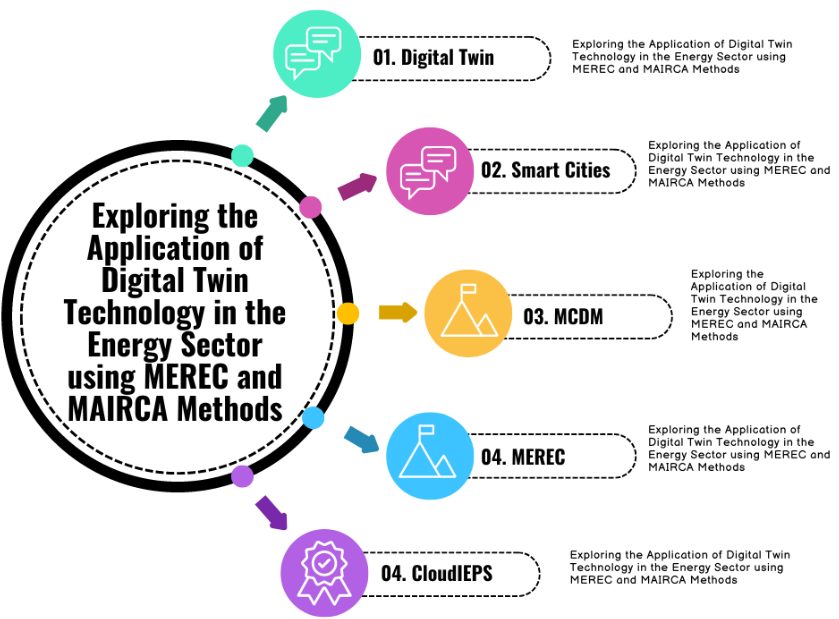Exploring the Application of Digital Twin Technology in the Energy Sector using MEREC and MAIRCA Methods
Main Article Content
Abstract
Smart city sustainability initiatives prioritize creating environmentally, economically, and socially sustainable urban environments. Digital Twin (DT) technology creates precise digital replicas of physical assets, systems, or processes. These digital twins play a crucial role in advancing the goals of smart city sustainability. This paper explores the development and application of DT technology for integrated regional energy systems in smart cities, emphasizing its potential to optimize energy consumption, reduce costs, and enhance overall system performance. The CloudIEPS platform, an energy internet planning platform based on digital twin technology, is a great example of how digital twin technology can be applied in practice, helping optimize energy efficiency and reduce costs. Integrating digital twin technology with the Multi-Criteria Decision-Making (MCDM) methods offers a novel approach to managing and optimizing energy systems in smart cities. The paper aims to create a consistent and robust approach to determining the best digital twin solution for energy systems in smart cities. The paper identifies critical factors for decision-making and establishes a method for assessing the significance of criteria using Triangular Neutrosophic Sets (TNS) through the MEthod based on Removal Effects of Criteria (MEREC) and the Multi-Attributive Ideal Real Comparative Analysis (MAIRCA) approach. These methods are used to evaluate and prioritize multiple criteria in decision-making processes. Furthermore, the methods are combined with Triangular Neutrosophic Sets (TNS) to support decision-making for smart cities' energy systems, better accounting for the complex and uncertain nature of energy systems. A case study is conducted to apply and validate the developed methodology and perform a sensitivity analysis of the experimental results. The research outcomes indicated that the proposed methodology is robust and effective in handling the uncertainty and complexity inherent in smart cities' energy systems. The sensitivity analysis further confirms the stability and adaptability of the proposed methodology across different scenarios, making it a valuable tool for policymakers and stakeholders in the energy sector.
Downloads
Article Details

This work is licensed under a Creative Commons Attribution 4.0 International License.





